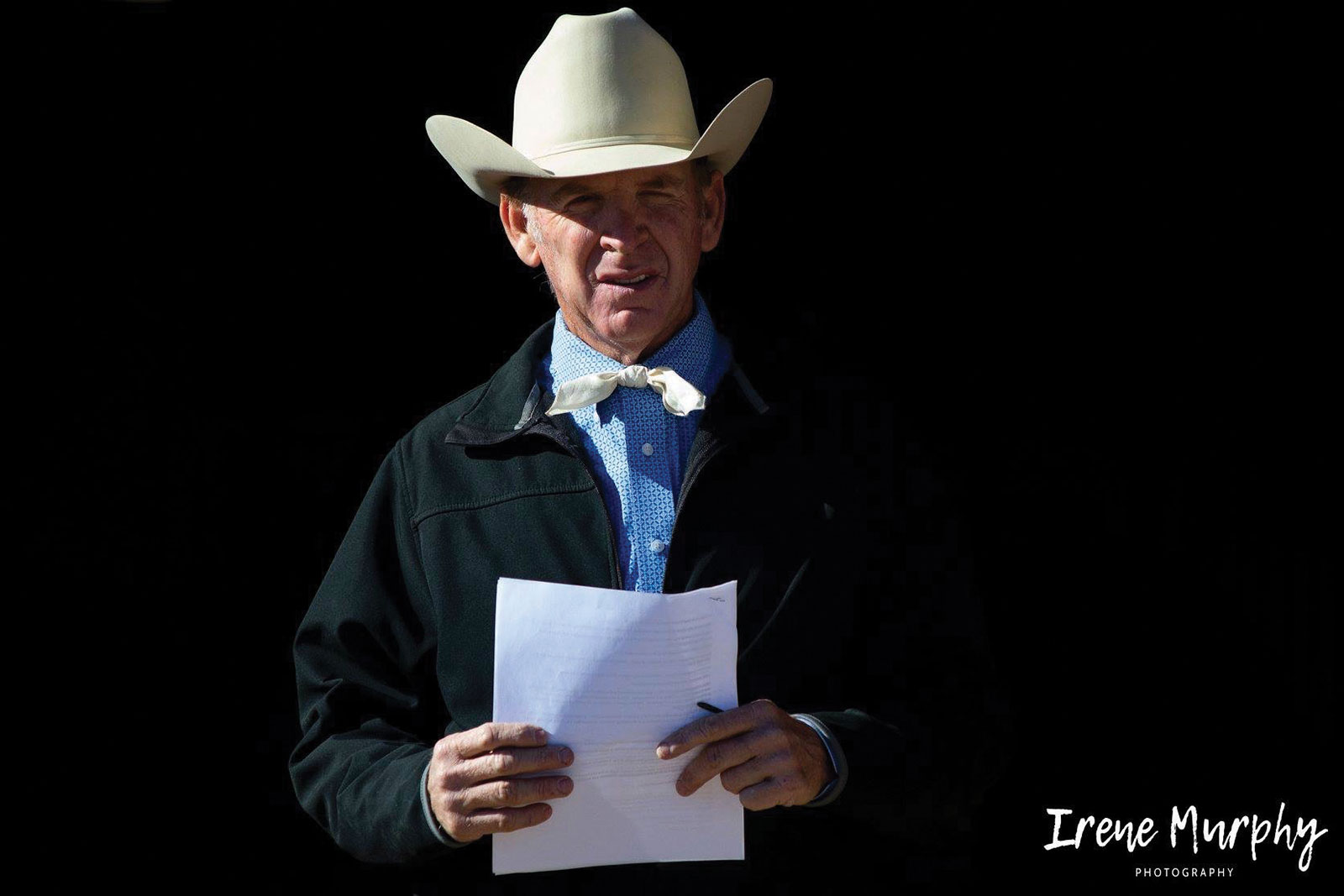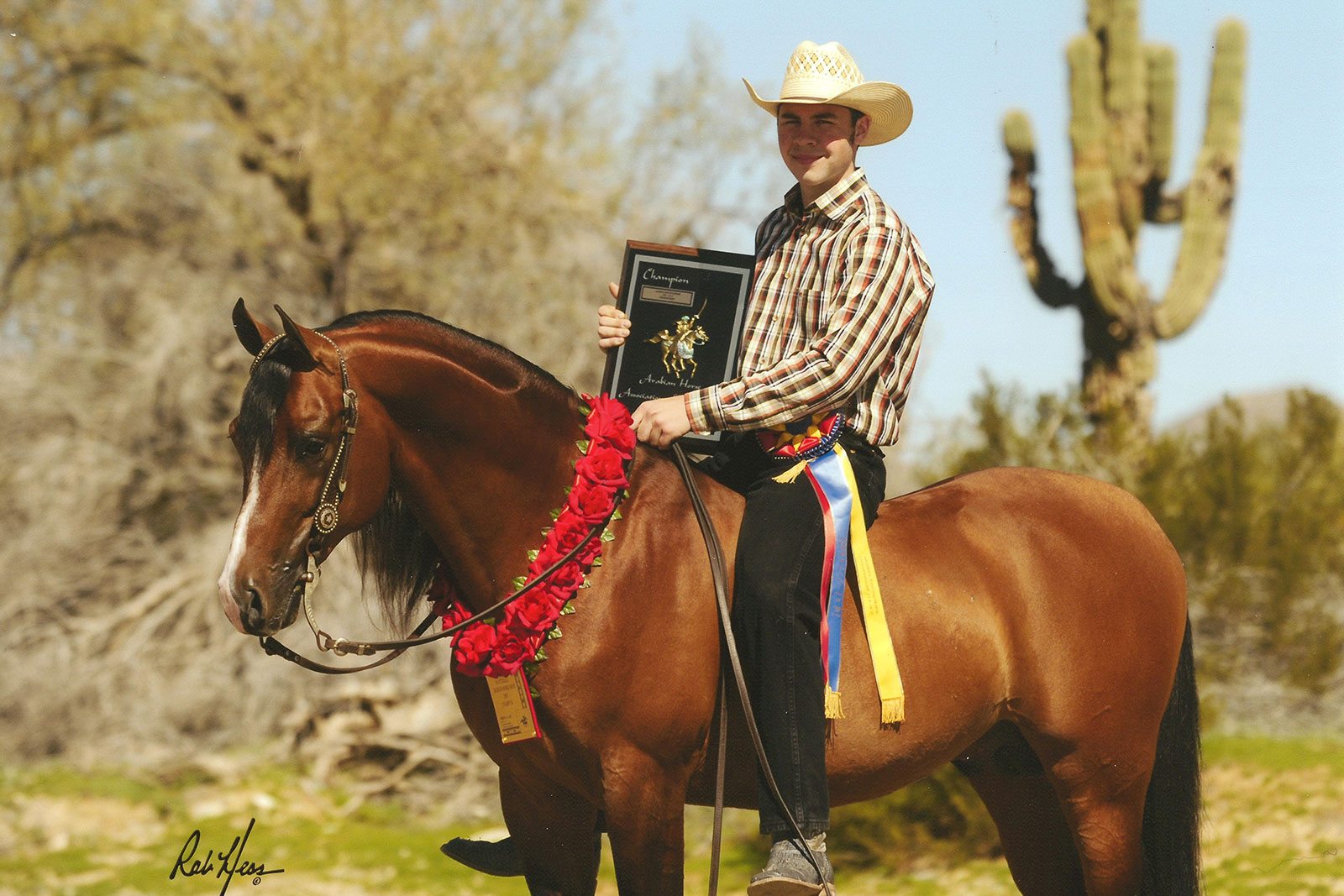By Chris Culbreth
As featured in the Fall 2024 issue of Arabian Horse World
As a significant part of our ongoing commitment to ensure confidence within the Arabian Horse Association (AHA) membership and the entire equestrian community at large, the Education & Evaluation Commission (EEC) has engaged in a multifaceted approach. This renewed focus not only works toward the continuing education of our judges but also improves clarity for our valued horse owners and exhibitors. The mission is to clarify exactly what our judges are instructed to look for while officiating.
Due to the global pandemic, the mandatory judge’s seminar had to be held online. Licensed judges are required to attend the seminar once every three years. In addition, our National/Regional Judges are required to partake in a personal interview every six years. Some have suggested that we continue the online version of the required seminar in the future. Because of the significant value of a focused curriculum and the educational value of professional interaction among EEC instructors and fellow officials, the EEC and the Commissioner’s office decided to return the judge’s seminar to an in-person format.
Keeping with the principle of renewed focus, we continue to move toward accountability and accurate perception of judging. As a part of this accuracy, we are giving our judges the necessary tools to have a consistent result in officiating. Many of our divisions are judged subjectively, as opposed to the scored classes that are offered in other divisions. In the scored classes, a predetermined and quantifiable set of metrics is assigned specifically to the various maneuvers demonstrated throughout scored events.
In the endeavor to provide this improved consistency to our subjectively judged classes, the EEC is working toward providing our judges with various values to be assigned to the class specifications used in these subjective divisions. Following is one such example:
Class Specification for Country English Pleasure Open
Attitude: 40%
Manners: 30%
Performance :15%
Quality: 10%
Conformation: 5%
In addition, an increased educational emphasis is being placed on the cornerstone of all good judging, the class specifications. This emphasis is not just on adherence to the class criteria but also on the definitions and the proper interpretations of these imperative specifications. For example: Substance, the first specification for judging Western Pleasure Junior Horse. Occasionally, substance is misinterpreted as heavy, thick, or even masculine. On the contrary, substance must be looked at as the perception of strength and power to do any required task for an extended amount of time with minimal effort. Further clarification is that substance is the athletic structure and fitness necessary to perform the discipline efficiently. An overweight or out-of-shape horse would not fit this description. In contradiction, such corpulence would be considered a detriment to the horse.
As an important part of our ongoing drive toward clarity in judging, we have also instituted various outreach campaigns for our membership. These programs have included the Ringside Discussion Series, Town Halls, various articles, and online resources available to all AHA members through www.arabianhorses.org.
This year, the Ringside Discussions were offered at numerous regional shows and Mid Summer Nationals. They were offered free to the public and featured EEC Instructors who were often accompanied by other Senior Judges. The discussions were held throughout various class sessions during these events. A panelist would explain exactly how the classes were being evaluated. The focus was not on how the classes should be placed but on the correct class specifications and procedures utilized by the judges throughout the classes to obtain a final result. This unique opportunity also allowed attendees to ask specific and further reaching questions of the panelist. Some educational material used throughout these discussions was often the same resources utilized during the judge’s seminars. These events were offered through the AHA Judges & Stewards Commissioners office and cosponsored by some of the events they were held during.
Recently, the AHA presented an online Judges Town Hall to which all AHA members were invited. Members were asked to submit questions in advance and encouraged to submit questions through the live chat function during the forum. Mary Jane Brown, the AHA Judges & Stewards Commissioner, and I, the National Chairman of the Education & Evaluation Commission, facilitated the event.
Throughout the nearly two-hour forum, Mary Jane and I fielded many questions. Some of these questions were very basic regarding judging, while others were more in-depth and required a greater conversation and explanation. An overview of exactly what the Commissioner’s office and the EEC’s responsibilities entailed was also shared. The goal of this type of forum was to provide an open line of communication between judges, exhibitors, and the AHA Leadership. A recording of this event is available online.
The Judges & Stewards Commissioner’s office, the EEC, and AHA continue to develop educational materials available to all AHA members. In addition, we recognize that questions and concerns regarding officiating in our sport will continue to grow. The ongoing dialog between leadership and the equestrian community is important and necessary for the long-term viability of our association. We fully recognize that consistency, clarity, integrity, and accountability are of the utmost importance to guaranteeing the future success of our beloved breed, the Arabian horse.





